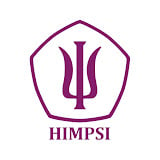AN OVERVIEW OF PSYCHOLOGICAL WELL-BEING ON WOMEN SURVIVORS OF DOMESTIC VIOLENCE
Abstract
Keywords
Full Text:
PDFReferences
Ahinkorah, B. O., Dickson, K. S. & Seidu, A. (2018). Women decision-making capacity and intimate partner violence among women sub-saharan africa. Archives of Public Health, 76(5), 1-10. DOI: 10.1186/s13690-018-0253-9
Akhtar, M. (2017). #Whatis PTG?. London: Watkins Publishing.
Amato, P. R. (2014). The consequences of divorce for adults and childern: An Update. Journal of Marriage and Family, 62(4), 5–24. DOI: 10.1111/j.1741-3737.2000.01269.x
Basile, K. C., Arias, L., Desai, S. & Thompson, M. P. (2004). The differential association of intimate partner physical, sexual, psychological, and stalking violence and post traumatic stress symptoms in a nationally representative sample of women. Journal of traumatic stress, 17, 413-421. DOI: 10.1023/B:JOTS.0000048954.50232.d8
Bernett, A. W., Miller-Perrin, C. L. & Perrin, N. D. (2010). Family violence across the lifespan: An Introduction, third edition. USA: Sage Publication, Inc.
Bryngeirsdottir, H. S. & Halldorsdottir, S. (2022). “I’m a winner, not a victim”: The facilitating factors of PTG among women who have suffered intimate partner violence. International Journals of Environmental Research and Public Health, 19(3), 1-18. DOI: 10.3390/ijerph19031342
Bungin, B. (2001). Metodologi penelitian kualitatif aktualisasi metodologis ke arah ragam varian kontemporer. Jakarta: Rajawali Pers.
Campbell, J. C., & Soeken, K. L. (1999). Women’s responses to battering over time: An analysis of changes. Journal of Interpersonal Violence, 14(1), 21–40. DOI: 10.1177/088626099014001002
Choirina, V. N., Ayriza, Y. & Wibowo, Y. S. (2021). Religiosity and life satisfaction in indonesia: Evidence from a community survey. Journal of Educational, Health and Community Psychology, 10(1), 38-47. DOI:10.12928/jehcp.v10i1.19625
Clarke-Stewart, A., & Brentano, C. (2006). Divorce: Causes and consequences. New Haven: Yale University Press
Crapolicchio, E., Vezzali, L. & Regalia, C. (2020). “I forgive myself”: the association between self-criticism, self-acceptance, and ptsd in women victims of ipv and the buffering role of self-efficacy. Journal of Community Psychology, 49(2), 1-15. DOI: 10.1002/jcop.22454
D’Amore, C., Martin, S. L., Wood, K. & Brooks, C. (2018). Themes of healing and posttraumatic growth in women survivors’ narratives of intimate partner violence. Journal of Interpersonal Violence, 36(5), 1-28. DOI: 10.1177/0886260518767909
Desiningrum, D. R. (2014). Kesejahteraan psikologis lansia janda/duda ditinjau dari persepsi terhadap dukungan sosial dan gender. Jurnal Psikologi Undip, 13(2), 102-106. DOI: 10.14710/jpu.13.2.102-201
Dillon, G., Hussain, R., Loxton, D. & Rahman. S. (2013). Mental and physical health and intimate partner violence against women: A review of litterature. International Journal of Family Medicine, 13, 1-16. DOI: 10.1155/2013/313909
Edgar, A., & Sedgwick, P. (2008). Cultural theory: the key consepts second edition. London: Routlegde.
Fitriani, A. (2016). Peran religiusitas dalam meningkatkan PWB. Al-Adyan: Jurnal Studi Lintas Agama, 11(1), 1-24. DOI: 10.24042/ajsla.v11i1.1437
Goodkind, J. R., Gillum, T. L., Bybee, D.I. & Sullivan, C. M. (2003). The impact of family and friends reaction on the well being of women with abusive partner. Violence Against Women, 9(3), 347-373. DOI : 10.1177/1077801202250083
Haj-Yahia, M. M. (2000). Implications of wife abuse and battering for self-esteem, depression, and anxiety as revealed by the second Palestinian national survey on violence against women. Journal of Family Issues, 21(4), 435–463. DOI: 10.1177/019251300021004002
Komnas Perempuan. (2020). Kekerasan meningkat: Kebijakan penghapusan kekerasan seksual untuk membangun ruang aman bagi perempuan dan anak perempuan, catatan kekerasan terhadap perempuan tahun 2019. Jakarta: Komisi Nasional Anti Kekerasan Terhadap Perempuan
Loue, S. (2002). Intimate partner violence: Societal, medical, legal, and individual responses. New York: Kluwer Academic Publisher.
Machisa, M. T., Christofides, N. & Jewkes, R. (2018). Social support factors associated with psychological resilience among women survivors of intimate partner violence in gauteng, south africa. Global Health Action, 11(3), 1-9. DOI: 10.1080/16549716.2018.1491114
Maulana, H. & Diningrum, M. L. S. (2015). Kesejateraan psikologis pada istri yang mengalami KDRT. Jurnal Penelitian dan Pengukuran Psikologi, 4(1), 33-42. DOI: 10.21009/JPPP.041.07
Naz, S. & Malik, N. I. (2018). Domestic violence and PWB of survivor women in punjab, pakistan. Journal of Psychology and Clinical Psychiatry, 9(2), 184-189. DOI: 10.15406/jpcpy.2018.09.00519
Park, C. L., Chmielewski, J. & Blank, T. O. (2010). PTG: Finding positive meaning in cancer survivorship moderates the impact of intrusive thoughts on adjustment in younger adults. Psycho-Oncology, 19(11), 1138-1147. DOI: 10.1002/pon.1680
Pathak, N., Dhairyawan, R. & Tariq, S. (2019). The experience of intimate partner violence among older women: A narrative review. Maturitas, 121 (13), 63-75. DOI: 10.1016/j.maturitas.2018.12.011
Patra, P., Prakash, J., Patra, B. & Khanna, P. (2018). Intimate partner violence: Wounds are deeper. Indian Journal of Psychiatry, 60(4), 494-498. DOI: 10.4103/psychiatry.IndianJPsychiatry_74_17
Poerwandari, E. K. (1998). Pendekatan kualitatif dalam penelitian psikologi. Jakarta: Lembaga Pengembangan Sarana Pengukuran dan Pendidikan Psikologi (LPSP3) Fakultas Psikologi Universitas Indonesia.
Poerwandari, E. K. (2007). Pendekatan kualitatif dalam pendekatan penelitian psikologi. Jakarta: LPSP3 Universitas Indonesia
Poerwandari, E. K. (2013). Pendekatan kualitatif untuk penelitian perilaku manusia. Jakarta: LPSP3 Universitas Indonesia
Roberto, K. A., McPherson, M. C. & Brossoie, N. (2014). Intimate partner violence in late life: A review of the empirical literature. Violence Againts Women, 19(12), 1538-1558. DOI: 10.1177/1077801213517564
Ryff, C. D., & Keyes, C. L. M. (1995). The structure of PWB revisited. Journal of Personality and Social Psychology, 69(4), 719–727. DOI: 10.1037//0022-3514.69.4.719
Salim & Syahrum. (2012). Metodologi penelitian kualitatif: Konsep dan aplikasi dalam ilmu sosial, keagamaan dan pendidikan. Bandung: Citapustaka Media
Santrock, J. W. (2002). Life span development, perkembangan masa hidup jilid ii. Jakarta: Erlangga
Sukeri, S. & Man, N. N. N. (2017). Escaping domestic violence: A qualitative study of women who left their abusive husbands. Journal of Taibah University Medical Sciences, 12(6), 477-482. DOI: 10.1016/j.jtumed.2017.05.009
Triplett, K. N., Tedeschi, R. G., Cann, A., Calhoun, L. G. & Reeve, C. L. (2012). Posttraumatic growth, meaning in life, and life satisfaction in response to trauma. Psychological Trauma: Theory, Research, Practice, and Policy, 4(4), 400-410. DOI:10.1037/a0024204
Shanahan, M. J. (2000). Pathways to adulthood in changing societies: Variability and mechanisms in life course perspective. Annual Review of Sociology, 26, 667-692. DOI:10.1146/annurev.soc.26.1.667
Umberson, D. & Montez, K. J. (2010). Social relationship and health: A flashpoint for health policy. Journal Health Social Behavior, 51, 54-56. DOI: doi: 10.1177/0022146510383501
Umberson, D. Crosnoe, R. & Reczek, C. (2010). Social relationships and health behavior across the life course. Anuu Rev Sociol, 36, 139-157. doi: 10.1146/annurev-soc-070308-120011
Viviana, A., Meggiolaro, S., Rivellini, G. & Zaccarin, S. (2018). Social relations and life satisfaction: The role of friends. SpringerOpen, 74(7), 1-18. DOI: 10.1186/s41118-018-0032-z
Weaver, T. L. & Resick, P. A. (2008). Mental health consequences of intimate partner abuse: A multidimentional assessment of four different forms of abuse. Violence Against Women, 14(6), 634-654. DOI: 10.1177/1077801208319283
Wells, I. E. (2010). PWB (psychology of emotions, motivations, and actions). United Kingdom: Nova Science Pub Inc.
White, D. M. (2018). Long-term survivors’ coping and resiliency strategies after leaving an abusive relationship: A phenomenological inquiry (Thesis). Minnesota: Walden University.
Wijaya, D. A., Widyorini, E., Primasturi, E. & Dominguez, J. (2021). Resilience, PTG, and PWB among adolescents experiencing parents’ marital dissolution. Jurnal Ilmu Perilaku, 5(1), 1-20. DOI: https://doi.org/10.25077/jip.5.1.1-20.2021
Wuest, J. & Merritt-Gray, M. (2015). Beyond survival: reclaiming self after leaving an abusive male partner. Canadian Journal of Nursing Research, 32, 79-94.
DOI: http://dx.doi.org/10.22441/biopsikososial.v8i2.19533
Refbacks
- There are currently no refbacks.
Copyright (c) 2024 Biopsikososial: Jurnal Ilmiah Psikologi Fakultas Psikologi Universitas Mercubuana Jakarta
JBUMBand its articles is licensed under a Creative Commons Attribution-ShareAlike 4.0 International License.
Tim Editorial Office
JBUMB
Fakultas Psikologi, Universitas Mercu Buana
Jalan Meruya Selatan No. 1, Kembangan, Jakarta Barat, 11650, Indonesia
Phone: +6281318855243
Email: [email protected]
Website: https://publikasi.mercubuana.ac.id/index.php/biopsikososial/index

















